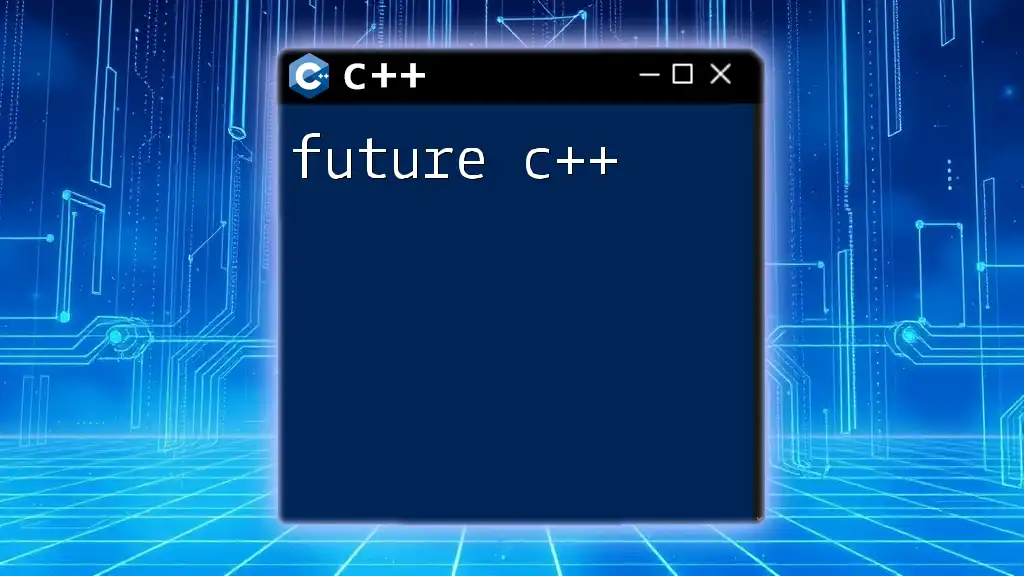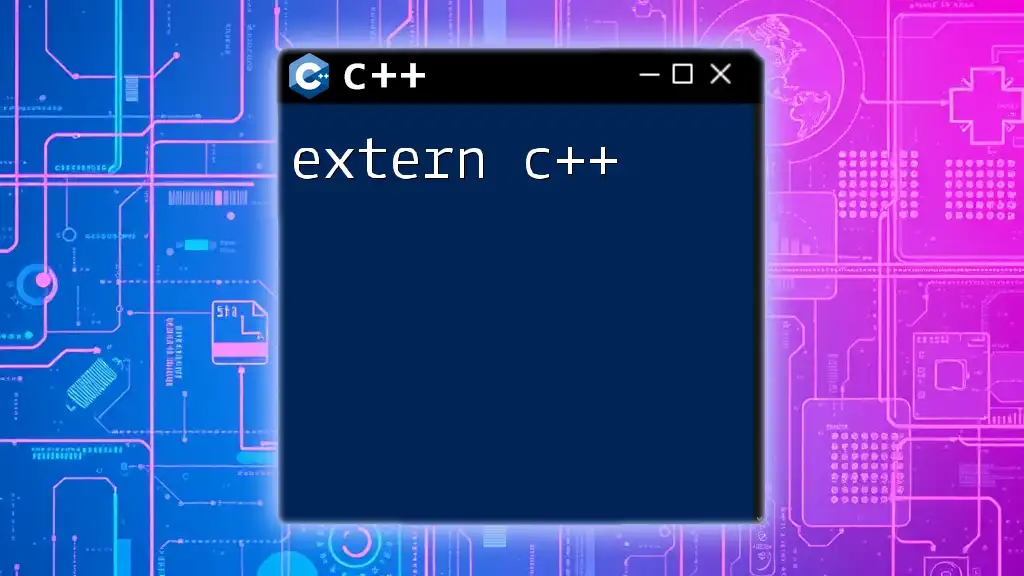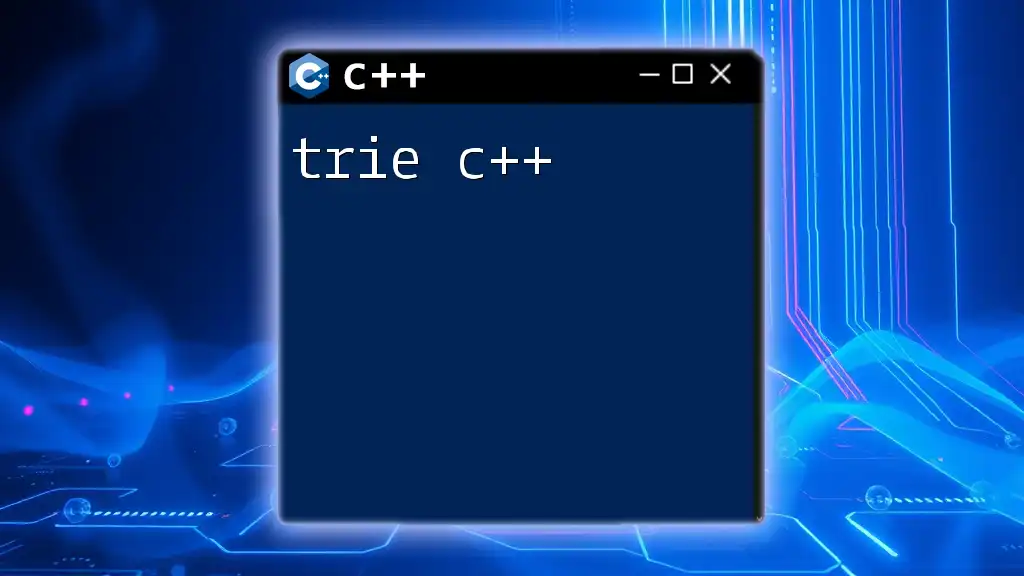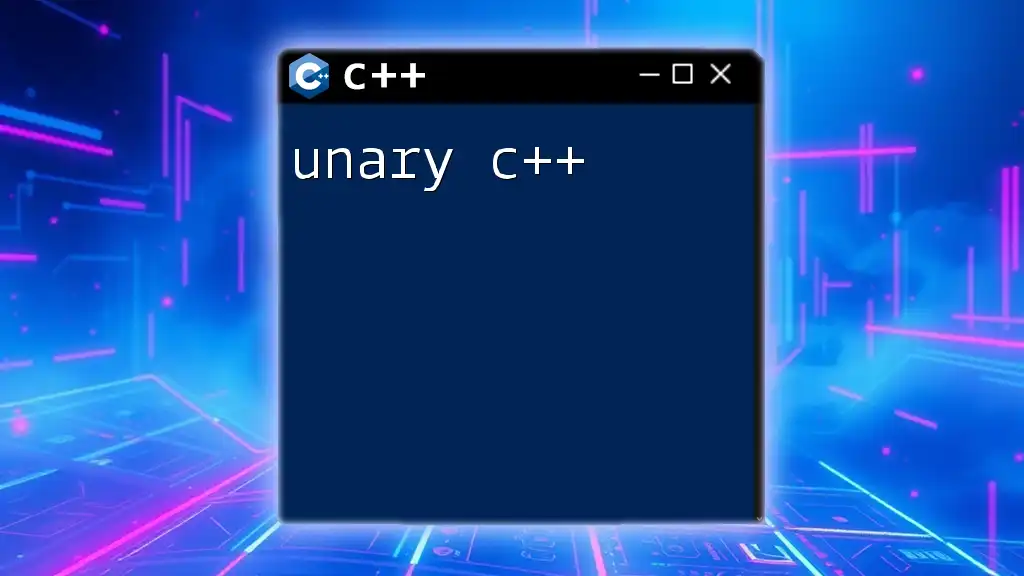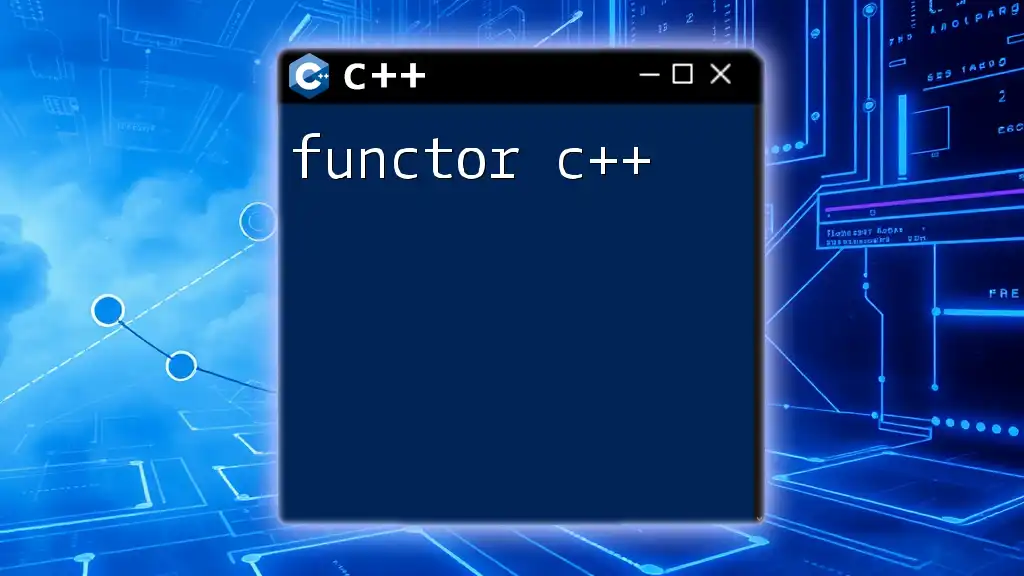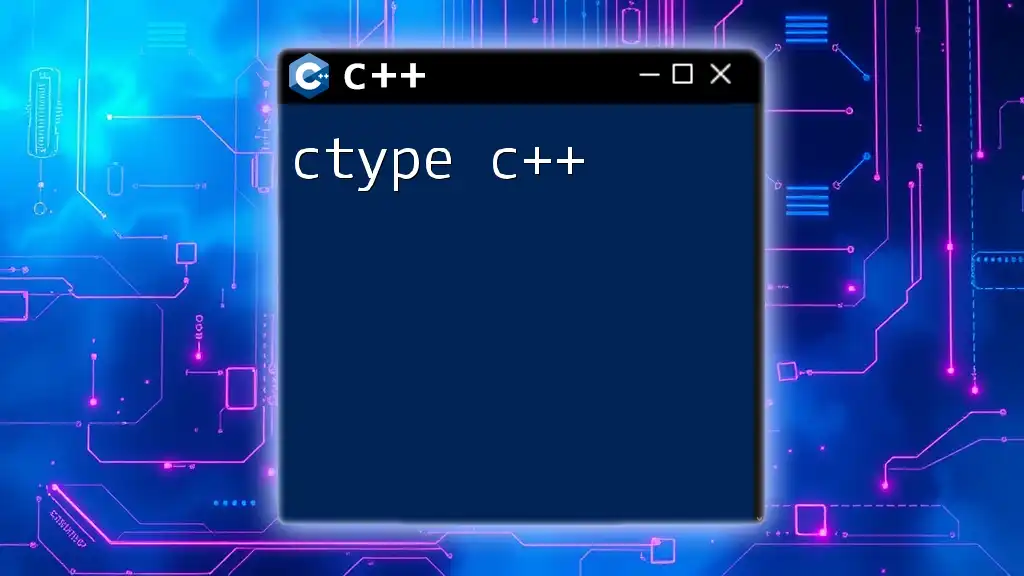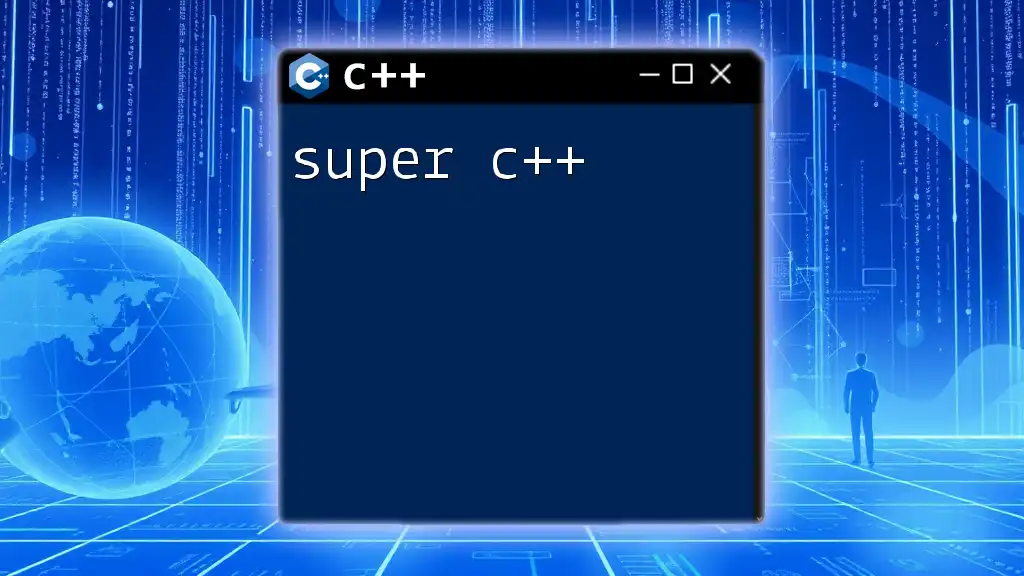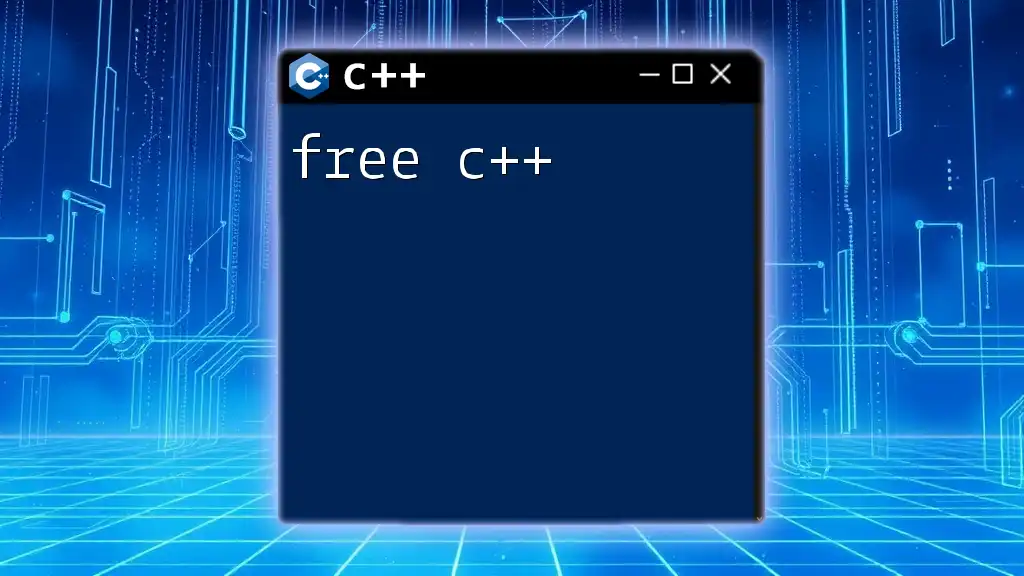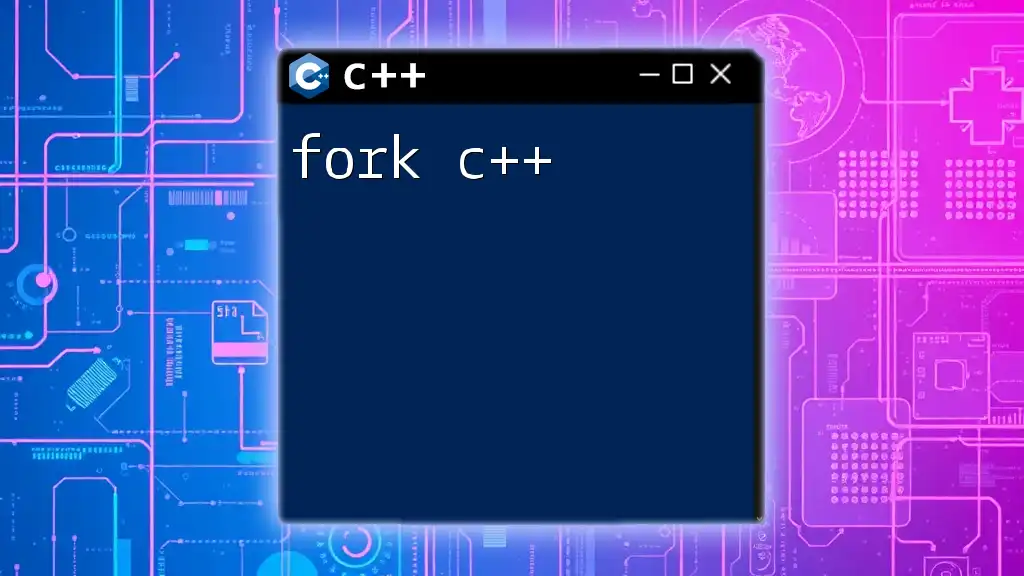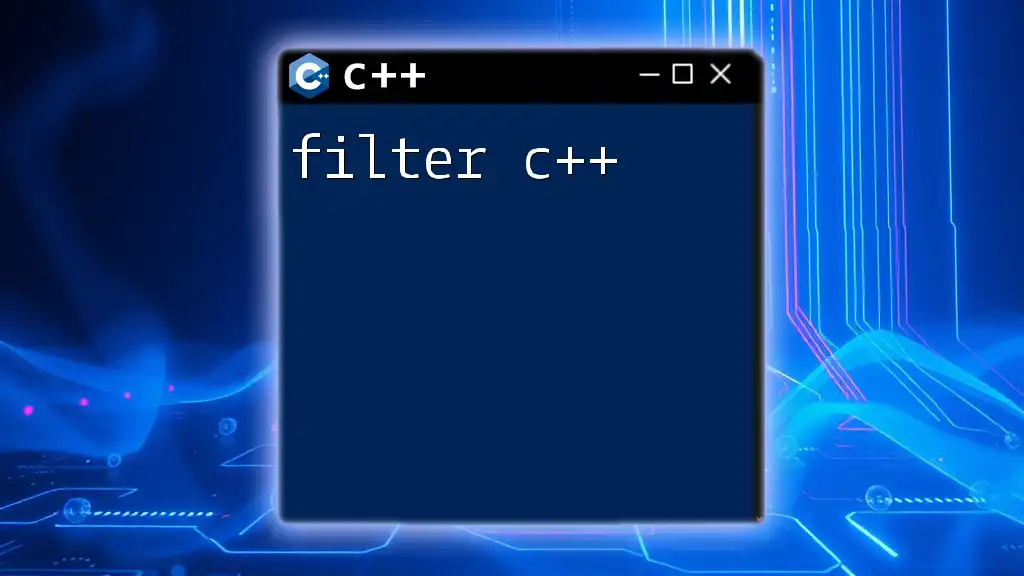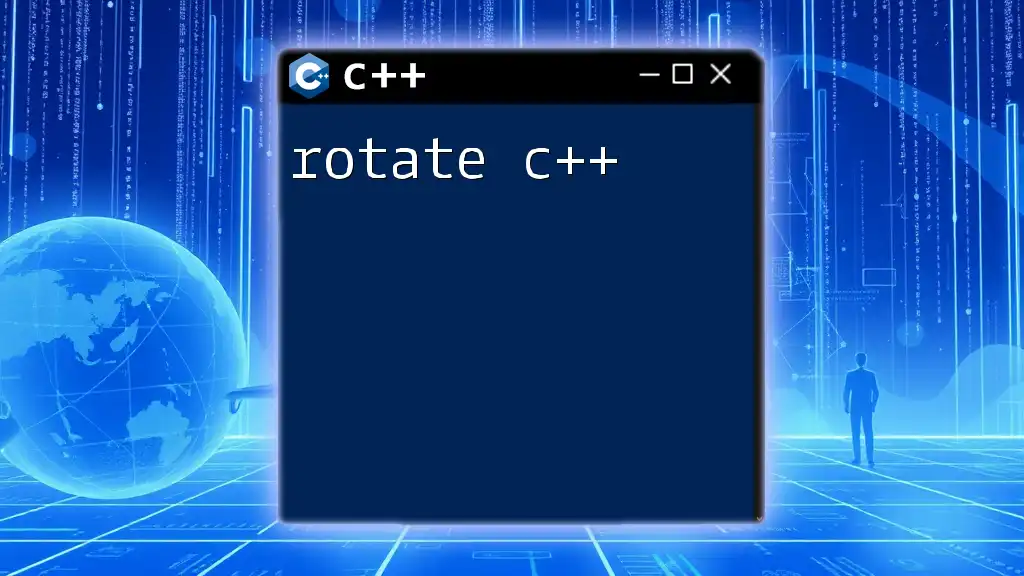The future of C++ lies in its continuous evolution towards improved performance and modern programming paradigms, exemplified by the introduction of concepts, ranges, and enhanced type safety.
Here's a simple code snippet demonstrating the use of the new ranges feature in C++20 to manipulate a collection:
#include <iostream>
#include <vector>
#include <algorithm>
#include <ranges>
int main() {
std::vector<int> numbers = {1, 2, 3, 4, 5};
// Use ranges to transform and filter the collection
auto results = numbers | std::views::transform([](int n) { return n * n; })
| std::views::filter([](int n) { return n > 4; });
for (int n : results) {
std::cout << n << " "; // Output: 9 16 25
}
return 0;
}
What is C++?
C++ is a powerful programming language known for its high performance and flexibility, making it a preferred choice for system software, game development, and resource-constrained applications. It builds on the foundation of the C language, adding features such as object-oriented programming, generic programming, and strong type-checking. Its versatility allows developers to apply it across a wide range of applications, from low-level hardware interactions to high-level software design.
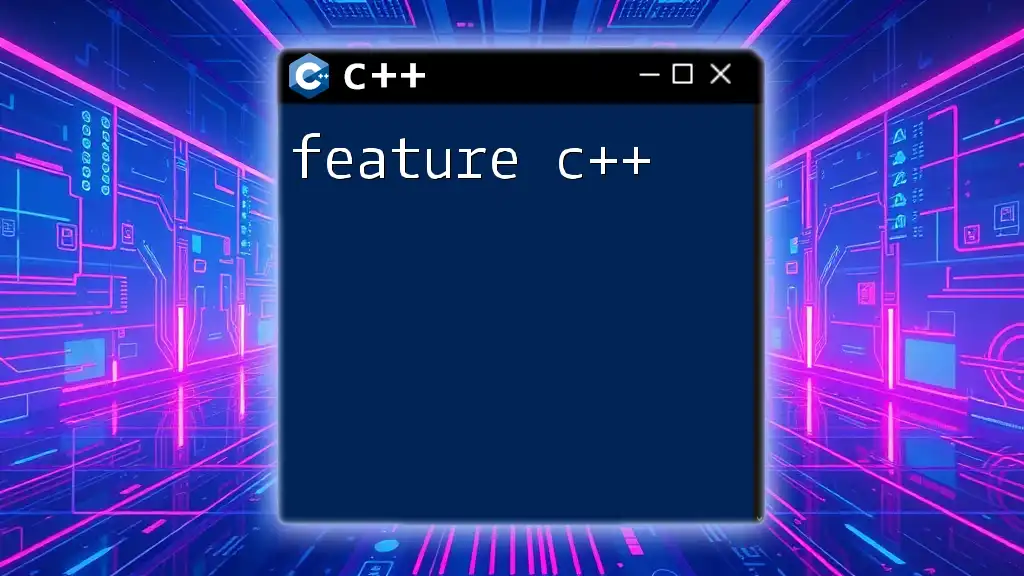
Why Discuss the Future of C++?
As programming languages evolve to accommodate new technologies and paradigms, it is vital to reflect on the advancements in C++. The future of C++ is not merely a reflection of its past but a bright path forward that leverages its strengths in an evolving technological landscape. Recognizing and understanding these shifts can help developers remain relevant and proficient in their craft.
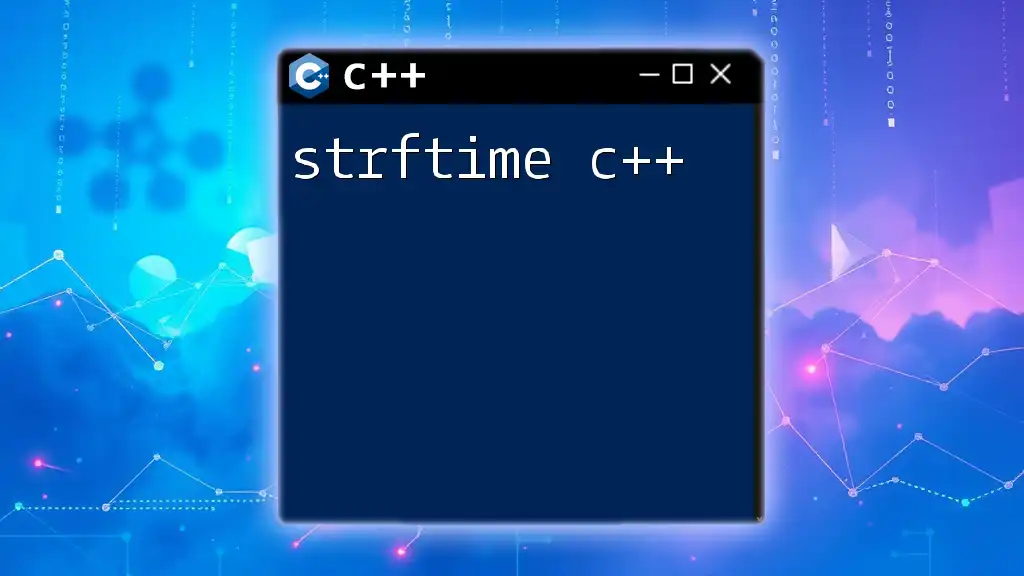
Current Trends in C++
The Rise of C++20
New Features and Enhancements
C++20 ushers in a host of new features that significantly enhance the language's usability and performance. Let's cover a few key additions that are shaping its future:
-
Concepts: This feature introduces a way to specify template requirements, making it easier to write more generic and readable code.
-
Ranges: A powerful abstraction that allows for cleaner manipulation of sequences of data. This reduces the need for verbose looping constructs and improves code readability.
Example using ranges:
#include <vector> #include <iostream> #include <ranges> int main() { std::vector<int> nums = {1, 2, 3, 4, 5}; auto doubled = nums | std::views::transform([](int n) { return n * 2; }); for (int n : doubled) { std::cout << n << " "; // Output: 2 4 6 8 10 } } -
Coroutines: Allow writing asynchronous code in a straightforward manner, dramatically improving clarity and efficiency within programs.
C++22 and Beyond: What to Expect
Looking ahead, C++22 promises to further enhance the capabilities of the language with several exciting features:
Expected Features in C++22
-
More Type Traits: Improved type traits will enable developers to write more idiomatic and robust code by allowing compile-time checks and optimizations.
-
Formatting Library: A standardized library for formatting strings and outputs, facilitating cleaner and more maintainable code.
The C++ community has been active in discussing and proposing these features, and engaging with these discussions can inspire developers to adapt their practices to upcoming changes.
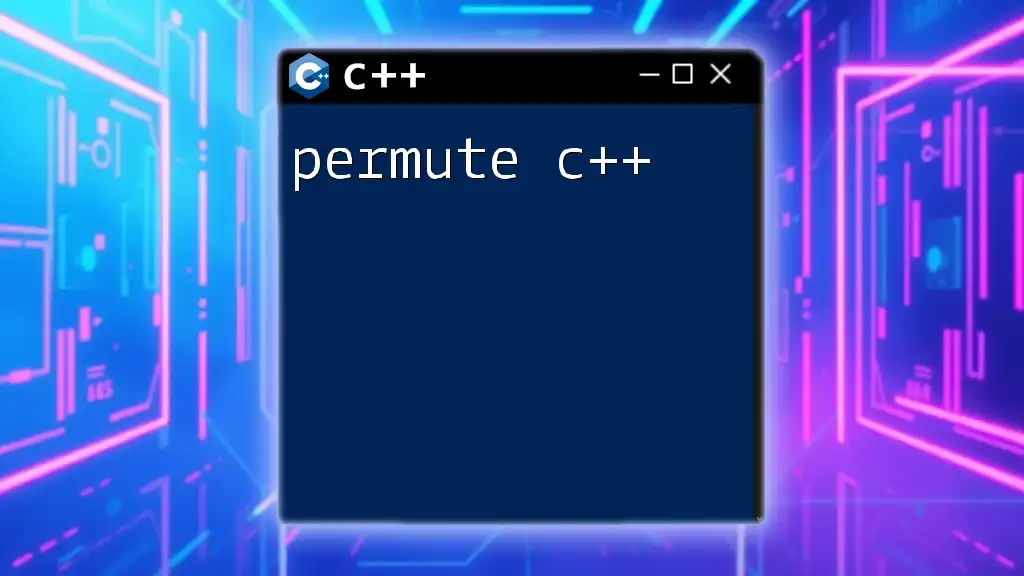
The Role of C++ in Modern Development
C++ in Game Development
C++ plays a pivotal role in the game development industry. Its ability to handle low-level memory management and provide high-performance execution is critical for developing graphics-intensive AAA titles. Engines such as Unreal Engine use C++ to harness hardware capabilities while ensuring the performance demands of modern gaming are met. The language's versatility allows for quick iteration in development and the optimization of complex algorithms.
C++ in Systems Programming
The future of C++ remains strong in systems programming where performance and efficiency are paramount. Systems programming demands a language that can interact directly with hardware while maintaining speed and reliability. Many operating systems, device drivers, and kernel modules rely on C++ because of its ability to provide direct memory access, control over system resources, and support for multi-threading.
An example of a system-level operation could be:
#include <iostream>
#include <cstdlib>
int main() {
std::cout << "Please enter a number: ";
int number;
std::cin >> number;
std::cout << "You entered: " << number << " (in hex: " << std::hex << number << ")\n";
return EXIT_SUCCESS;
}
C++ and Embedded Systems
The Internet of Things (IoT) is a rapidly expanding sector where C++ is gaining traction. Its efficiency and direct access to hardware make it an ideal choice for programming embedded systems. Devices ranging from smart home appliances to complex industrial machinery leverage C++ for performance and reliability. An example would be using C++ to write code for an Arduino board, showcasing the language's flexibility in various environments.
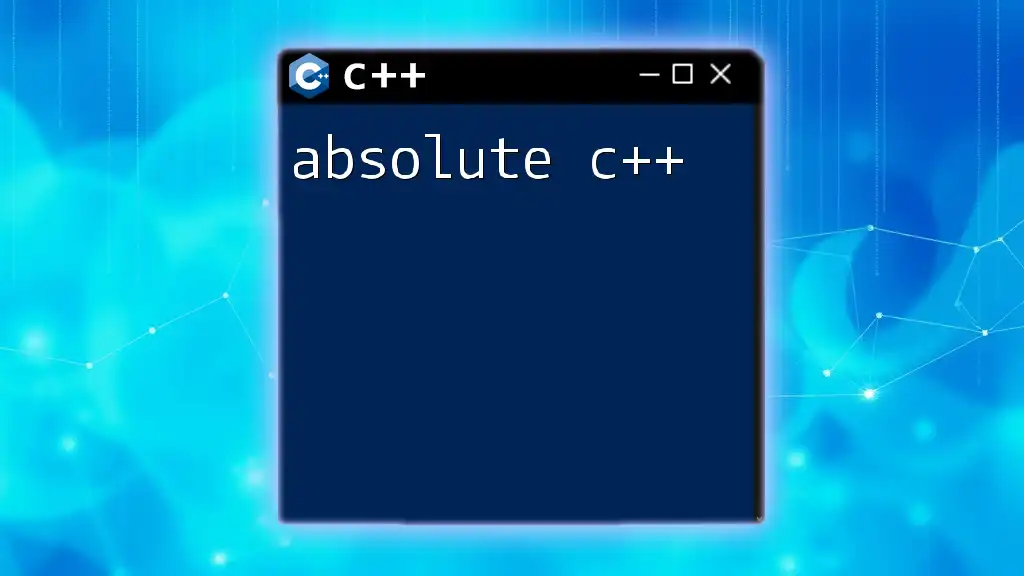
Community and Ecosystem
The C++ Community
The C++ community plays a crucial role in shaping the future of the language. The ISO C++ committee, comprising contributors from around the globe, is responsible for discussing and implementing new standards. Developers are encouraged to participate in this community, as their feedback can significantly influence the direction of future features.
Libraries and Frameworks
Libraries such as Boost and Qt are instrumental in extending C++ capabilities and easing development challenges. These frameworks provide pre-built functions and classes that abstract complex operations, allowing developers to focus on building applications rather than reinventing the wheel.
An example utilizing Boost for smart pointers:
#include <boost/shared_ptr.hpp>
#include <iostream>
void display(int* ptr) {
std::cout << "Value: " << *ptr << std::endl;
}
int main() {
boost::shared_ptr<int> p(new int(42));
display(p.get());
return 0;
}
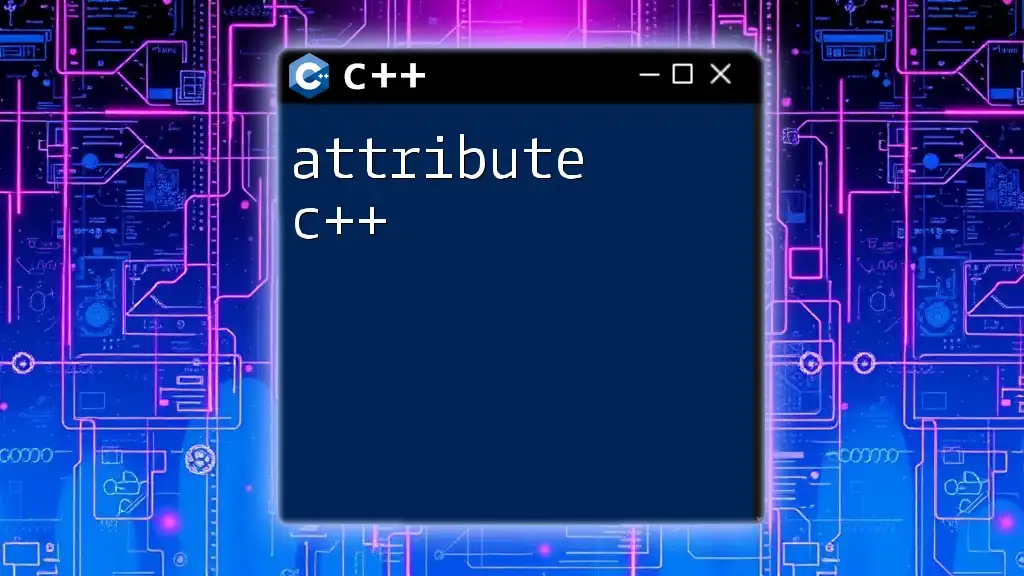
The Education Shift: Learning C++
Online Resources and Courses
As C++ evolves, so do the methods through which it is taught. Numerous online platforms provide structured courses that cater to various skill levels. These courses often emphasize hands-on programming, allowing learners to practice as they acquire new knowledge. Engaging with practical exercises can boost understanding and retention of complex concepts.
Community Support and Collaboration
Joining C++ forums, user groups, and conferences can greatly enhance one’s learning experience. Engaging with peers allows aspiring programmers to share knowledge, troubleshoot issues, and collaborate on projects. Communities like Stack Overflow, Reddit’s r/cpp, and various C++ meetups embrace newcomers and provide vital support in navigating the learning curve.
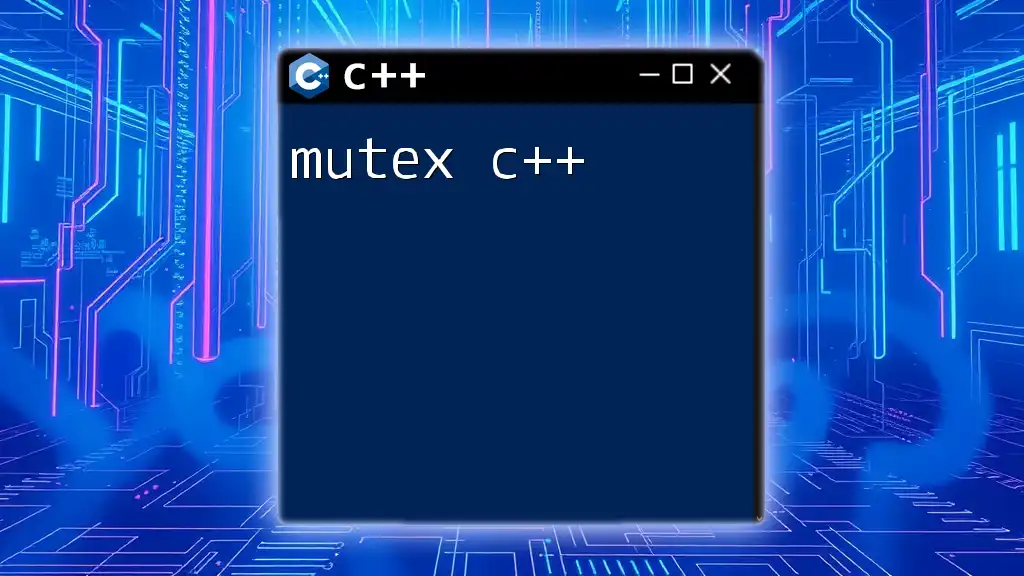
Challenges Facing the Future of C++
Complexity and Learning Curve
Despite its advantages, C++ is often criticized for its complexity and steep learning curve. While experienced developers value its power and flexibility, newcomers may find it overwhelming. Adopt strategies such as simplifying code, utilizing modern features to minimize boilerplate, and breaking problems into smaller parts to aid in mastering the language.
Competition with Other Languages
C++ faces stiff competition from languages like Python and Rust, which offer simpler syntax and built-in safety features. However, by focusing on its unique strengths, such as performance and low-level access, C++ can continue to hold its ground. The challenge lies in marketing these advantages effectively, especially as industrial and technological demands evolve.
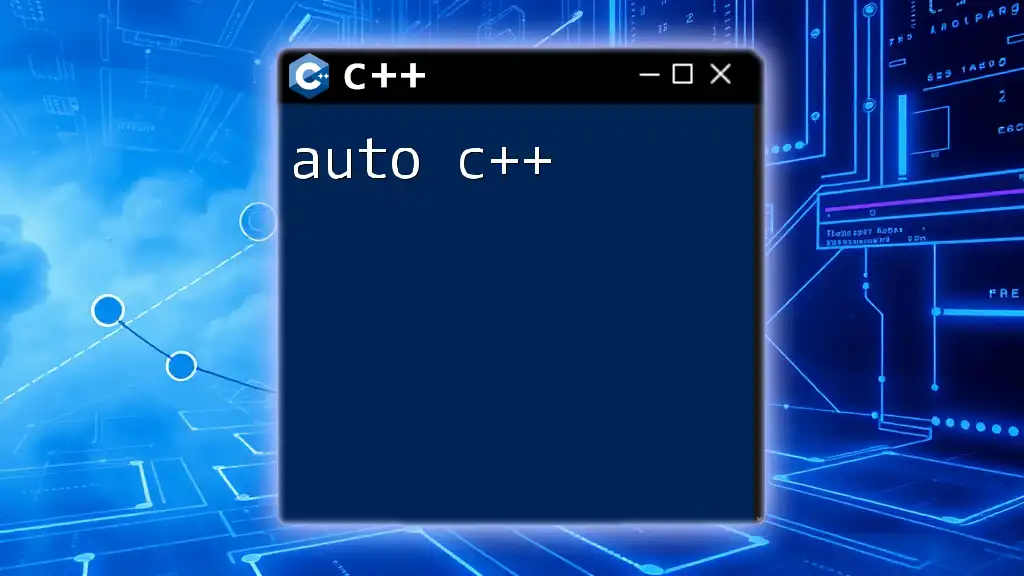
Conclusion
C++ possesses a rich history and an even more promising future. Its enduring relevance in fields ranging from game development to systems programming showcases its versatility and power. By embracing modern features, engaging with the community, and persistently evolving educational frameworks, C++ will continue to thrive in a competitive landscape. The future of C++ is bright, and now is the time to dive deep into its capabilities.
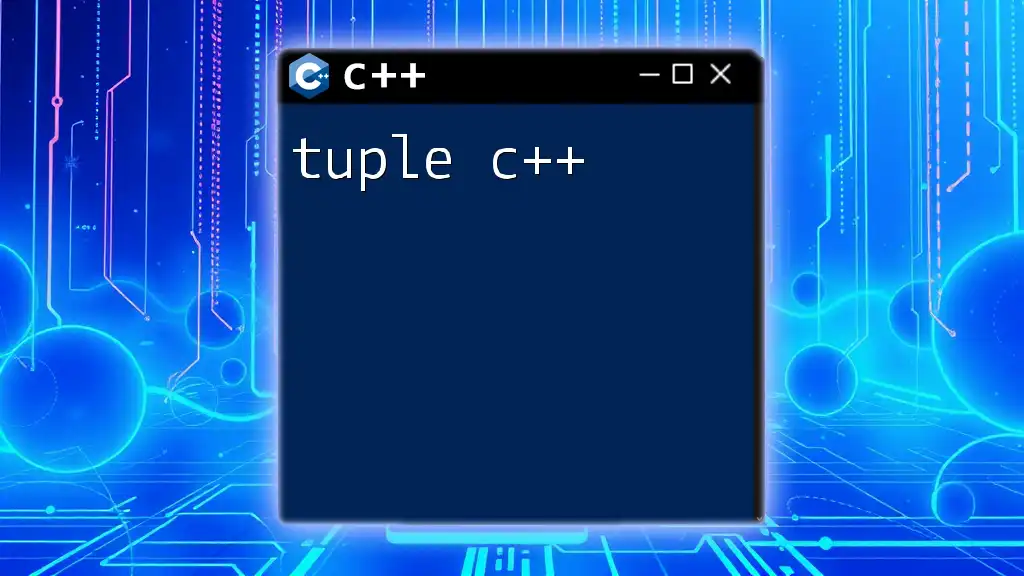
Call to Action
Explore the vast possibilities that C++ offers through interactive learning experiences. Your journey into the future of C++ starts here—engage with resources, participate in community discussions, and enhance your skills with our company’s offerings.
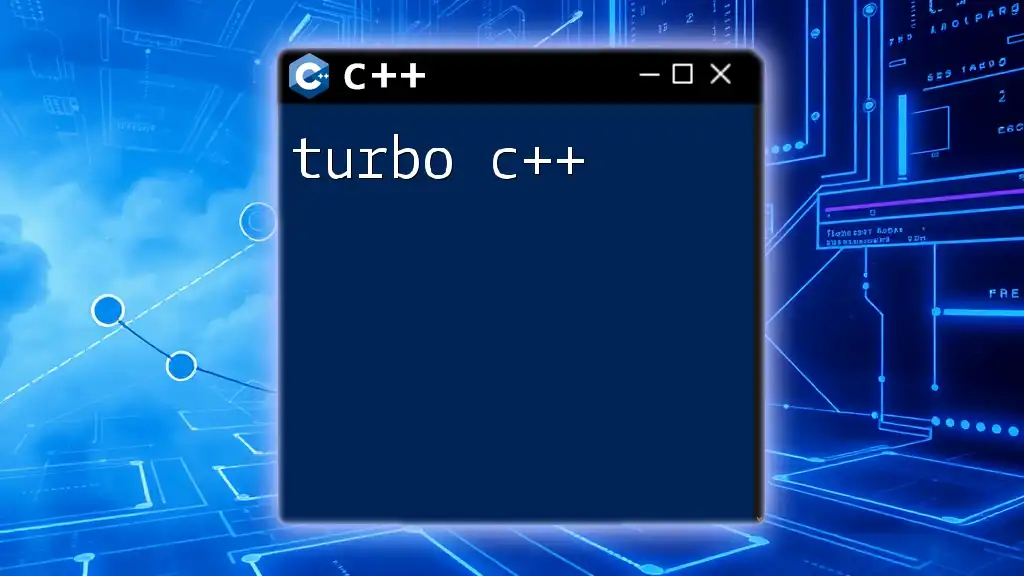
References and Further Reading
To further deepen your understanding of C++, consider diving into essential books and online resources. Familiarize yourself with the official C++ standards documentation and engage with the community to stay updated on the latest trends and best practices.

